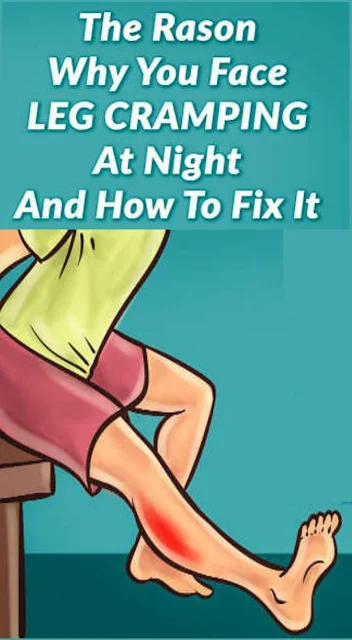Nighttime leg cramps can turn a peaceful night's sleep into a painful ordeal, leaving many individuals wondering why their legs cramp up and how to prevent it from happening again. In this article, we'll delve into the reasons behind those nocturnal muscle spasms and explore effective strategies to put an end to the discomfort once and for all.
1. Dehydration: The Culprit Within Reach
Dehydration is a common trigger for nighttime leg cramps. When the body lacks sufficient fluids, electrolyte imbalances can occur, leading to muscle cramps. Combat this by staying well-hydrated throughout the day. Make a habit of drinking water regularly, and consider incorporating hydrating foods such as watermelon and cucumber into your diet.
2. Electrolyte Imbalance: Replenishing the Essentials
Minerals like potassium, magnesium, and calcium are essential for muscle function. Deficiencies in these minerals can contribute to leg cramps. Include potassium-rich foods like avocados and spinach in your meals, and consider magnesium and calcium supplements if needed. Consulting with a healthcare professional can help you determine the right balance for your individual needs.
3. Nighttime Foot Position: A Simple Adjustment
The way you position your feet while sleeping can impact the occurrence of leg cramps. To reduce the risk, try sleeping on your back with your toes pointing upward. Placing a pillow under your feet can help maintain a neutral position, minimizing strain on the leg muscles and reducing the likelihood of cramping.
4. Fatigue and Overexertion: Finding Balance
Overworking your leg muscles during the day without proper stretching and warm-up can contribute to nighttime cramps. Incorporate stretching exercises specific to your leg muscles into your routine. Yoga or gentle stretches before bedtime can help prevent muscle fatigue and reduce the likelihood of cramping.
5. Nerve Compression: Easing the Pressure
Prolonged periods of sitting or poor posture can lead to nerve compression, contributing to leg cramps. Take breaks during the day to move and stretch, paying attention to your posture while sitting or standing. Regular leg stretches can alleviate nerve compression and reduce the risk of nighttime cramps.
6. Underlying Medical Conditions: Seeking Professional Guidance
In some cases, persistent or severe leg cramps may be linked to underlying medical conditions such as peripheral artery disease or diabetes. If you experience ongoing issues, consult with a healthcare professional to rule out potential health concerns and develop a tailored plan for relief.
Conclusion:
Understanding why your legs cramp up at night is the key to finding lasting relief. By addressing factors such as dehydration, electrolyte imbalance, nighttime foot position, muscle fatigue, and nerve compression, you can take proactive steps to prevent nighttime leg cramps and enjoy a more restful sleep. Incorporate hydration, a balanced diet, regular exercise, and proper sleep posture into your routine, and if problems persist, consult with a healthcare professional for personalized guidance. With a comprehensive approach, you can bid farewell to those nighttime leg cramps and embrace the tranquility of a cramp-free night's sleep.

